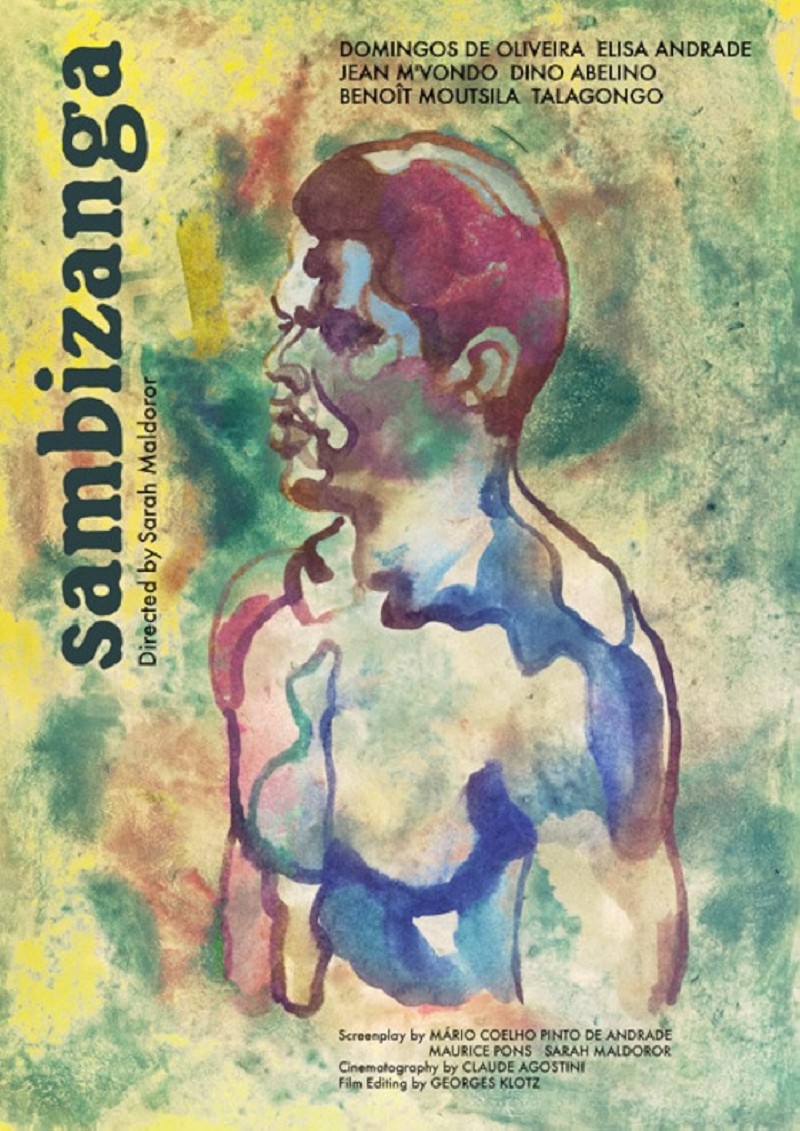
Introduced by Annouchka de Andrade.
Sarah Maldoror (1929-2020) has been hailed as one of the great directors of anti-colonial cinema, finally starting to receive her due. We present an evening of screenings of her work, in partnership with the London Review of Books and as part of the BFI’s Tigritudes season; and we’re delighted to welcome her daughter Annouchka de Andrade, currently engaged in completing a digitised archive of her mother’s remarkable body of work, to introduce her most famous feature.
Sambizanga (1972) was shot in Congo-Brazzaville and is set in Portuguese Angola in 1960, on the eve of the Angolan armed struggle. The film follows the desperate search of Mária for the whereabouts of her lover Domingos, a worker on a dam project who has been arrested by the colonial police. Most of the actors in this masterpiece had never appeared in front of a camera. They were pro-independence Angolans, young and elderly, exiled in Congo-Brazzaville and recruited by Maldoror for the film. The soundtrack includes an exquisite solo piece by the Angolan singer Belita Palma, ‘Caminho do Mato’ (The Track through the Bush). Listen out as Mária trudges from pillar to post with her child on her back, in search of her jailed lover.
About Sarah Maldoror
Maldoror made her name in theatre in Paris during the 1950s as a co-founder of an all-Black troupe known as The Griots, whose productions included Sartre’s play Huis Clos, dramatised readings from work by the Martinican poet Aimé Césaire, and the premier of Jean Genet’s play Les Nègres. In 1959 she moved to newly independent Guinea, under its radical president Sekou Touré, and embarked on a career as a filmmaker. After relocating to Algeria, she worked with Gillo Pontecorvo on The Battle of Algiers, released in 1966. Monangambeee, her first short feature, appeared in 1969, followed three years later by Sambizanga, her breakthrough film. She went on to make a further forty, mostly for French television. Some were brief, pithy items for mainstream arts and culture slots; others were full-length TV dramas, including Un Dessert pour Constance (1979) and Le Passager du Tassili (1986). Maldoror’s work has won acclaim from scholars of Black history and African cinema, as well as growing numbers of eclectic cinephiles. But as the film critic and cultural analyst Sukhdev Sandhu remarked after Maldoror’s death, hers is ‘a damaged, fugitive filmography’: several of her works are missing, others in urgent need of restoration.
A discount applies for those buying tickets to both of our Sarah Maldoror in Focus events. If you have a ticket for the shorts screening, and for Sambizanga in your basket, the price will automatically discount to £17.50 for both tickets.
Cast:
Elisa Andrade, Domingos de Oliveira, Jean M'Vondo